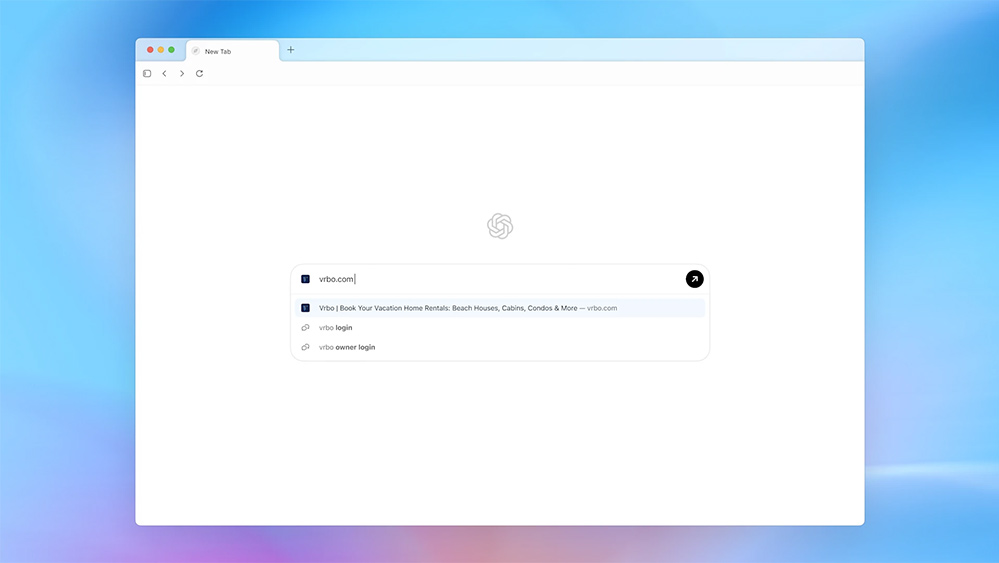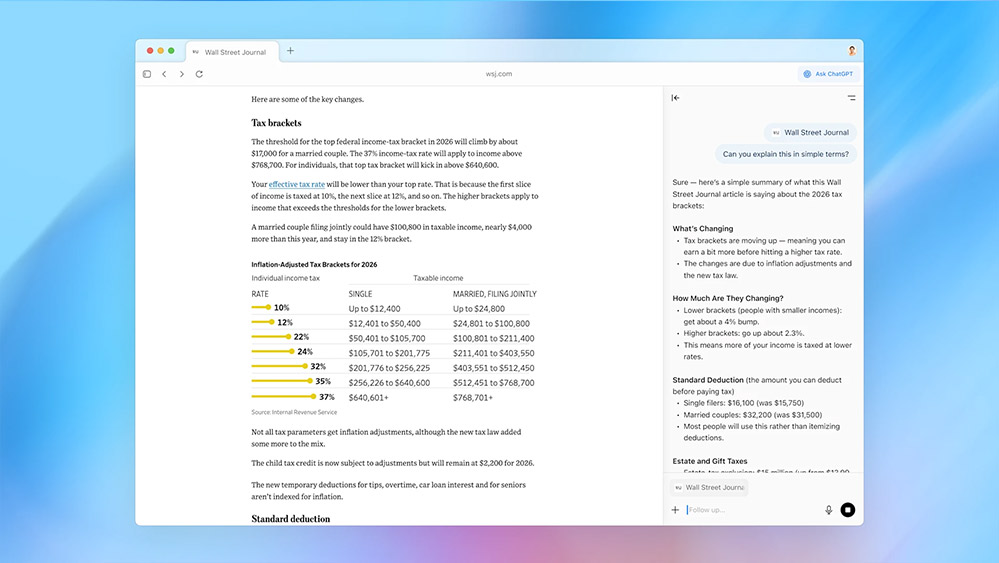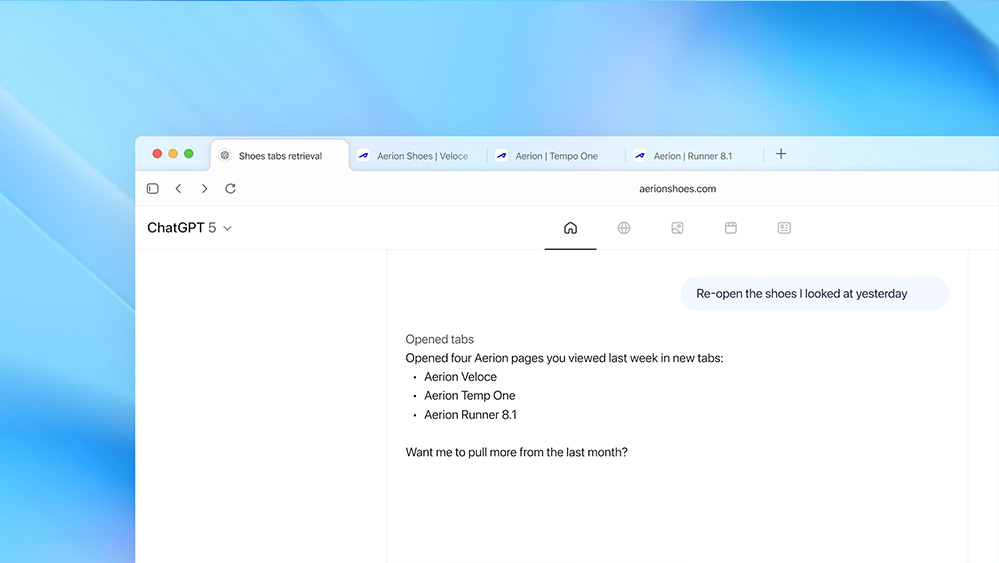
The modern artificial intelligence race began quietly, with language models learning to predict the next word in a sentence.
But everything changed in late 2022, when OpenAI launched ChatGPT. The conversational AI took the world by storm, setting off what many now call the "LLM war," a global race among tech giants to dominate the next computing era.
OpenAI’s breakthrough didn’t just popularize chatbots: it terrified Silicon Valley, especially Google.
For decades, Google ruled the web: it indexed everything, owned the browser most people used, and controlled how humanity searched, shopped, and learned. Then suddenly, ChatGPT offered a new interface, one that could think with its users, not just show them links.
Google scrambled. It was a "code red".
It launched Bard, then Gemini. It embedded AI into its search results and Chrome browser. But OpenAI has struck back once again, and this time, not just as a chatbot, but as a fully fledged browser, with the chatbot inside it.
OpenAI's revelation of 'ChatGPT Atlas' is making Google see fear again.
It’s a direct assault on Chrome’s 72% global browser market share and, more broadly, on Google’s grip over how people experience the web. Just overnight, Google lost a staggering $100 billion in market cap.
Meet our new browser—ChatGPT Atlas.
Available today on macOS: https://t.co/UFKSQXvwHT pic.twitter.com/AakZyUk2BV— OpenAI (@OpenAI) October 21, 2025
In the announcement, OpenAI said that:
"AI gives us a rare moment to rethink what it means to use the web. Last year, we added search in ChatGPT so you could instantly find timely information from across the internet—and it quickly became one of our most-used features. But your browser is where all of your work, tools, and context come together. A browser built with ChatGPT takes us closer to a true super-assistant that understands your world and helps you achieve your goals."
"With Atlas, ChatGPT can come with you anywhere across the web—helping you in the window right where you are, understanding what you’re trying to do, and completing tasks for you, all without copying and pasting or leaving the page. Your ChatGPT memory is built in, so conversations can draw on past chats and details to help you get new things done."
Atlas is a web browser built from the ground up with ChatGPT at its core, designed to make people reimagine how they navigate the internet.
Instead of a blank search bar waiting for users to type, the browser greets them with a familiar ChatGPT window. Ask it a question, tell it what to do, or just paste something there.
If users put an URL of a website, Atlas can start browsing the page to see what's inside it, which then allows users to ask it what they want it to do next. For example, it can understand the context of the page, fetch whatever inside it, and even act on users' behalf.
For example, on any page on any website on the web, Atlas users can pull up a sidebar to summarize, explain, or rewrite text directly in the same window. Users can highlight an article, ask ChatGPT to make a to-do list, or draft an email reply inside a text box, with no copy-paste required. For those juggling dozens of tabs, ChatGPT can even manage them by voice.
The experience feels different from anything on the web before.
During the launch, OpenAI CEO Sam Altman said that:

OpenAI calls this "agentic browsing."
Powered by Agent Mode, a system that can perform online tasks on users' behalf, Atlas can open tabs, fill forms, add items to a cart, and even make appointments. The company describes it as the next evolution of the ChatGPT Agent that it introduced earlier this year.
At this time, Agent Mode is still in preview, limited to ChatGPT Plus, Pro, and Business users, but early testers said that it's fast, surprisingly accurate, and feels like browsing with a digital secretary who knows users' habits and their history.
The method of how Atlas work, is defined by the way it uses users' information.
Unlike Chrome or Safari, Atlas is built around the Memory feature. When users browse, Atlas doesn't just save users' browsing history, but also have ChatGPT remember the context of the pages. what users asked, what they're actually doing on the page.
Using that information, Atlas can work, and refer to that information later.
For example, users can ask Atlas something like "Find those hotel deals I checked last week," or "Continue researching electric cars I was comparing yesterday," and it instantly knows what that means.
To preserve privacy, OpenAI said that these "browser memories" are private, optional, and fully user-controlled.
Users can disable them at any time, delete them, or just run Atlas in Incognito Mode so ChatGPT will forget everything once the session is over.
It’s launching first on macOS, with Windows, iOS, and Android versions coming soon.
Our new AI-first web browser, ChatGPT Atlas, is here for macOS.
Please send feedback! Availability on other platforms to follow.— Sam Altman (@sama) October 21, 2025
OpenAI’s head of applications, Fidji Simo, described Atlas as “a browser that works for you, not just with you.”
The implications are enormous.
For years, browsers have been passive: they're essentially containers for other people’s content. Atlas however, makes the browser active. It doesn’t just show users the web. Instead, it participates in the journey. It bridges the gap between human intention and online action.
OpenAI’s rise gives it momentum.
The company now has its valuation soared to $500 billion, surpassing even Elon Musk’s SpaceX. It’s secured a $100 billion investment from Nvidia, as well as multibillion-dollar deals with Broadcom and AMD. The company is also co-designing its own AI chips and building hyperscale data centers with Oracle under the massive Stargate Project, a move clearly aimed at competing head-to-head with Google’s vast computing empire.
OpenAI's presence is disruptive enough to unsettle not just Google Search and Chrome, but Google’s entire business model.
Of course, Google’s defenses are formidable.
In this case, Chrome still commands over 3.4 billion users, and its integration with Gmail, YouTube, Maps, and Android keeps billions locked into its ecosystem. Meanwhile, competitors like Microsoft’s Edge (with Copilot built-in), Perplexity’s Comet browser, and even smaller startups like Arc from The Browser Company (recently acquired by Atlassian), and Opera with Neon, are also pushing AI-driven browsing experiences.

OpenAI said that it prioritizes safety, and has added safeguards, which include:
- Atlas cannot run code in the browser, nor it can download files, or install extensions.
- It cannot access other apps on the users' computer or file system.
- ChatGPT will automatically pause whatever it's doing, unless users watch it take actions on specific sensitive websites, like financial institutions.
- Users can use the agent in logged out mode, in order to limit its access to sensitive data, and prevent risks of it taking actions by itself.
These approaches are meant to limit its access, and to give users the control of what it can and cannot do.
And then comes some of the issues.
According to OpenAI, ChatGPT's agent capabilities still carry risk. Besides simply making mistakes when acting on users' behalf, these agents are susceptible to hidden malicious instructions, which may be hidden in places such as a webpage or email with the intention that the instructions override ChatGPT agent’s intended behavior.
This could lead to stealing data from sites users are logged into or taking actions they didn't intend.
While the process of safeguarding ChatGPT is a continuous process, OpenAI suggests users to "weigh the tradeoffs when deciding what information to provide to the agent, as well as take steps to minimize their exposure to these risks such as using ChatGPT agent in logged-out mode in Atlas and monitoring agent’s activities."

Regardless, seeing how tech companies are actively pursuing agentic browsing with AI, the new "browser war" is officially underway.
If the early internet was ruled by Microsoft’s Internet Explorer, and the mobile era by Google Chrome, then the AI era might just belong to OpenAI’s Atlas. And once again, somewhere in Mountain View, Google is surely feeling that old, familiar chill down its spine.
Competing against those rivals, OpenAI has two big advantages: trust and familiarity.
ChatGPT is already the world’s most-used AI assistant, boasting 800 million weekly users. A turning it into a browser feels like a natural evolution.
In Altman’s words, "The browser is where all of your tools and context come together. ChatGPT inside a browser takes us closer to a true super-assistant that understands your world and helps you achieve your goals."
It’s an ambitious vision, but also a risky one.
Atlas will have to prove it can match Chrome’s speed, reliability, and cross-platform reach. It must also address privacy concerns around AI-powered browsing and automation. But for now, it represents something genuinely new: a browser that thinks alongside users, not just one that waits for instructions.
